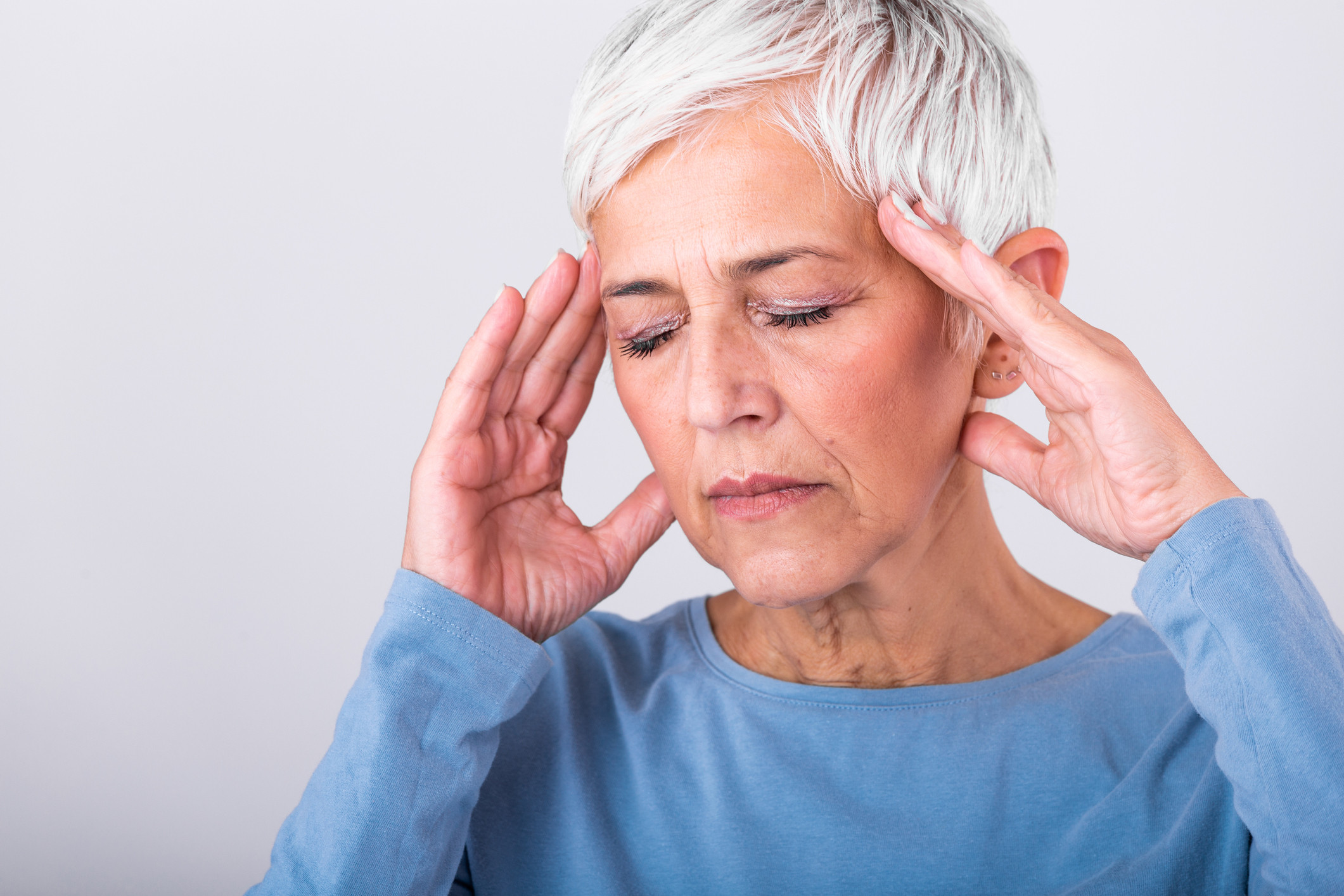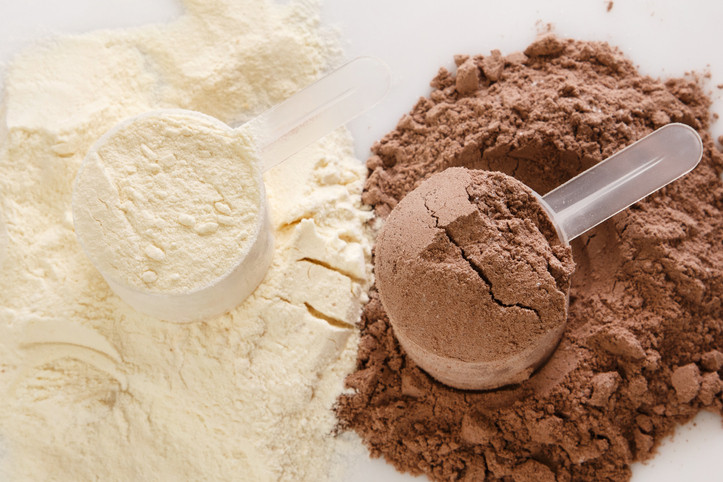
Trying to lose weight? Be careful not to lose muscle

Is your skin problem actually an autoimmune condition?

People with diabetes face higher risk of hearing loss

Antibiotic-free fixes for recurrent UTIs

Musculoskeletal syndrome of menopause: When menopause makes you ache all over

When can older women stop getting mammograms?

To lose weight, especially harmful belly fat, combine diet and exercise

Can men hold off on treating recurring prostate cancer?

The 7 types of rest and why we need them all

What are the early warning signs of cervical cancer?
Harvard Health Blog
Read posts from experts at Harvard Health Publishing covering a variety of health topics and perspectives on medical news.
Articles
Grandparenting in the time of COVID-19
As parents grapple with school and daycare closings prompted by coronavirus, grandparents have questions about helping with child care and whether they can safely spend time with their grandchildren.
Harvard Health Ad Watch: Are nutritional drinks actually good for you?
If you believe ads for nutritional supplement drinks, you might think you can improve your health by drinking them. But for most people, their value is questionable and their cost adds up.
Acoustic neuroma: A slow-growing tumor that requires specialized care
An acoustic neuroma is a tumor in the part of the brain responsible for hearing and balance. While the symptoms can be bothersome, these tumors are not cancerous and they grow slowly, allowing time for consultation with specialists and treatment planning.
Is there any good news about the coronavirus pandemic?
It's easy to feel overwhelmed by the daily flood of news about the coronavirus and COVID-19. Here's some positive news and reasons to feel optimism.
School closed due to the coronavirus? Tips to help parents cope
Is your child’s school closed due to precautionary measures around coronavirus? Here are some tips to help parents cope.
What works best for treating depression and anxiety in dementia?
There is evidence that antidepressants are not effective in older people with dementia. Emerging research suggests that nondrug, psychosocial interventions are the most effective treatments for depression or anxiety in older adults with cognitive impairment.
How to not practice emotional distancing during social distancing
While COVID-19 brings normal life to a temporary halt as we practice social distancing, it helps to double-down on deepening social bonds and practicing kindness and gratitude, not emotional distancing.
Why the human heart thrives with exercise
A study comparing the hearts of apes with four different groups of men demonstrates how the heart adapts over a person’s lifetime depending on what exercise a person does (or doesn’t do). The most revealing part of the findings pertained to men who are generally not active.
Go figure: A healthy eating approach helps people be healthy
A study comparing the outcomes of three eating plans (Mediterranean diet, paleo diet, or intermittent fasting) that were followed for a year found that all participants lost weight, and also had added benefits such as lower blood pressure.
Pregnant and worried about the new coronavirus?
How to talk to teens about the new coronavirus
Time to redefine normal body temperature?
Is 98.6˚ F still the norm for body temperature? Data collected over almost 160 years show that the normal body temperature has been declining and is now roughly one degree lower.
The skinny on freezing fat
A noninvasive treatment to remove subcutaneous body fat involves the freezing of areas that leads to a reduction in the fat layer. It’s an option for people who have lost weight and are trying to get rid of stubborn remaining fat, but it is not a weight-loss treatment.
Coping with coronavirus anxiety
Anxiety about the new coronavirus is understandable. But there are actions you can take –– or avoid –– to help you cope with anxious feelings and choices you can make to help yourself and others.
Peanut allergy: A new medicine for children may offer protection
In children with food allergies, peanut allergy is the one most likely to cause a severe reaction. A newly approved medication made from peanut flour treats peanut allergy by giving a gradually increasing dosage over several months.
The BEEP program: Keep your balance
As people get older, the complex system that helps them maintain balance does not work as effectively, increasing the risk of a fall. A study found that specific exercises can improve balance in older adults.
The scoop on protein powder
The amount of protein you need depends on your age, health, and the intensity of your fitness routine. For most people it’s relatively easy to get the recommended amount from food, but there are situations when someone might want to consider a protein powder supplement.
How to talk to children about the coronavirus
Can stress really make hair (or fur?) turn gray?
Does stress really turn hair gray? Scientists conducted experiments that simulated stress and led to gray hair—in mice, which does not mean it’s true for humans, regardless of what you may have heard in the media.
Surrogacy: Who decides to become a gestational carrier?
What prompts a woman to become a surrogate or gestational carrier, carrying a child for people she may not know? The answers seem straightforward in some instances and more complex in others.
Can short bouts of running lengthen lives?
An analysis of research suggests those who run regularly –– regardless of pace, distance, or amount of time –– are more likely to live longer and have a lower risk of cardiovascular disease or cancer.
Pain and neuromodulation: What’s all the “buzz” about?
Neuromodulation therapies use a targeted stimulus to help people manage pain. This can be in the form of an electrical stimulation device or a pump containing medication, either of which can be implanted in the body.
Cutting down on alcohol helps if you have atrial fibrillation
There is good evidence that the more you drink, the more likely you are to develop atrial fibrillation. A study found that people with afib who were willing to abstain from alcohol were less likely to have a recurrence.
The role of our minds in the avoidance of falls
In older people, the majority of falls occur when someone is standing or walking while also performing a separate cognitive or motor task. These tasks require more cognitive effort as we age, but focus and awareness can prevent falls from happening.

Trying to lose weight? Be careful not to lose muscle

Is your skin problem actually an autoimmune condition?

People with diabetes face higher risk of hearing loss

Antibiotic-free fixes for recurrent UTIs

Musculoskeletal syndrome of menopause: When menopause makes you ache all over

When can older women stop getting mammograms?

To lose weight, especially harmful belly fat, combine diet and exercise

Can men hold off on treating recurring prostate cancer?

The 7 types of rest and why we need them all

What are the early warning signs of cervical cancer?
Free Healthbeat Signup
Get the latest in health news delivered to your inbox!
Sign Up

























